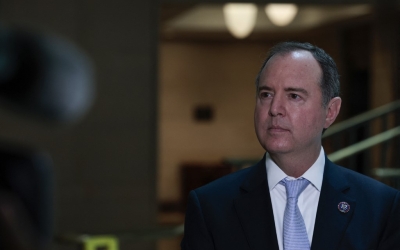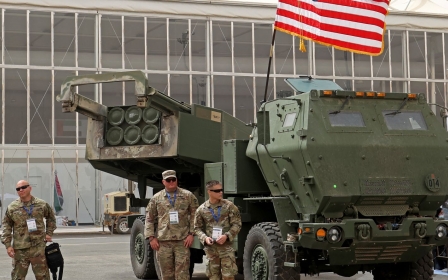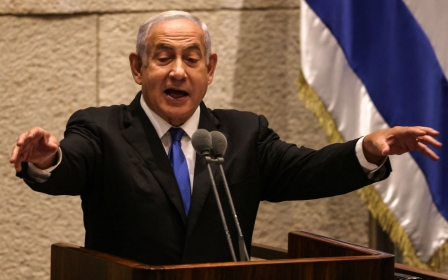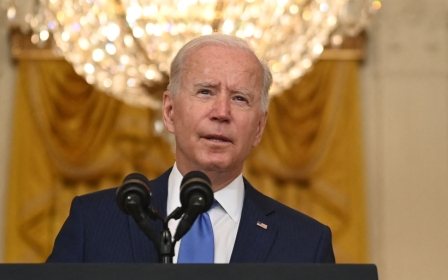After touching moment in Israel, will Biden extend a hand to MBS?
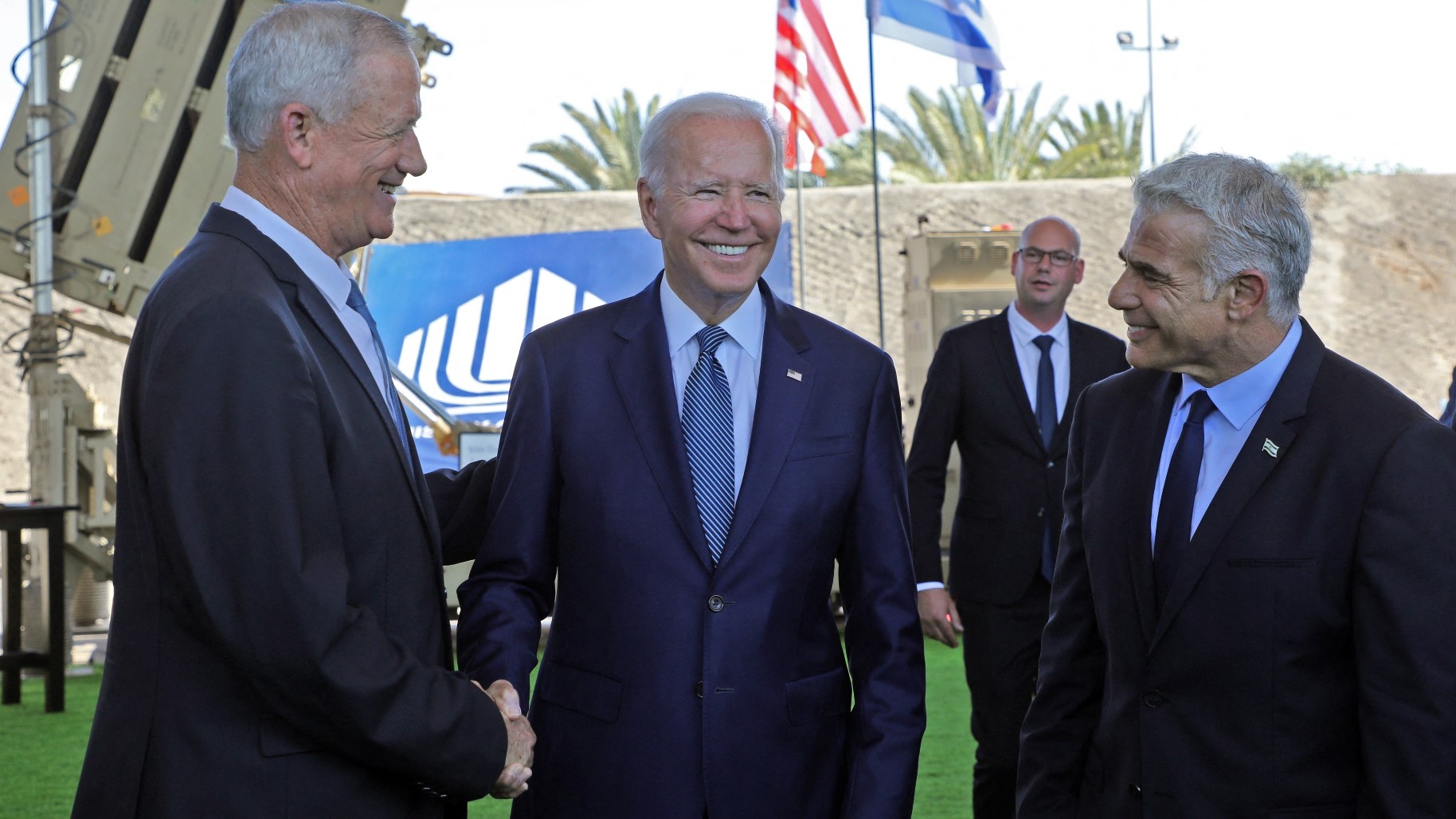
US President Joe Biden touched down in Israel on Wednesday, kicking off his visit with a series of handshakes with Israeli leaders, including former prime minister Benjamin Netanyahu.
The handshakes appeared to break a protocol set by the White House, in which the US president would avoid shaking hands with leaders because of precautions against Covid-19. It also complicates plans aimed at avoiding a politically costly photo op of Biden shaking hands with Saudi Arabian Crown Prince Mohammed bin Salman (MBS), who he snubbed when coming into office.
While bumping fists with several other Israeli leaders, including the current caretaker Prime Minister Yair Lapid, he proceeded to shake the hand of Netanyahu as well as that of Naftali Bennett, who recently stepped down from the Israeli premiership. He also shook hands with Defence Minister Benny Gantz.
Later in the day, Biden was seen doing the same with other Israeli officials during a visit to Israel's memorial to the Holocaust.
The handshakes are at odds with remarks from White House officials, who stressed the president would be taking precautions to limit physical contact during the visit.
"We're in a phase of the pandemic now where we are looking to reduce contact," National Security Adviser Jake Sullivan told reporters when asked if Biden would shake hands on the trip. "I can't speak to every moment in every interaction and every movement. That's just kind of a general principle we're applying."
White House Press Secretary Karine Jean-Pierre wouldn't say whether the new guidelines around handshakes were a deliberate effort to avoid a photograph of Biden shaking hands with MBS.
"We are saying that we're going to try to minimise contact as much as possible. But also there are precautions that we are taking because this is up to his doctor," she told reporters.
But even just before leaving for the Middle East, Biden had been shaking many hands over the past week, including with American lawmakers at the White House on Tuesday.
Biden is scheduled to visit Saudi Arabia later this week, and will attend a regional summit of Arab leaders in Jeddah. While the US president has stressed he will not be meeting with the Saudi crown prince, a US official confirmed last week that Biden would be holding a bilateral meeting with Saudi Arabia, which will include King Salman and Mohammed bin Salman.
The White House has avoided clarifying whether Biden will have a one-on-one meeting with the crown prince, who is the de facto leader of the kingdom.
Biden entered office with a pledge to turn Saudi Arabia into a "pariah" over the 2018 killing of Washington Post and Middle East Eye columnist Jamal Khashoggi, who was critical of the kingdom's government, as well as its human rights abuses. Biden also said he would reorient the relationship with Riyadh, and would only work with the ailing King Salman, not his son, the crown prince.
But following the Russian invasion of Ukraine, and the surge in global oil prices, the Biden administration has changed its calculus as the Democratic Party is at risk of losing control of Congress in the upcoming November midterm elections.
The decision to shake hands with Israeli leaders sets a precedent for his trip to Saudi Arabia, where anything less than a handshake with Saudi leadership could be met with offence, while Americans will be watching the entire visit at home with distaste - fewer than a quarter of Americans are in favour of Biden's visit, according to a Washington Post poll.
Leading US lawmakers have also been opposed to the visit, with Adam Schiff, who chairs the House of Representatives intelligence committee, saying last month: "I wouldn't go. I wouldn't shake [Mohammed bin Salman's] hand. This is someone who butchered an American resident, cut him up into pieces and in the most terrible and premeditated way."
Middle East Eye propose une couverture et une analyse indépendantes et incomparables du Moyen-Orient, de l’Afrique du Nord et d’autres régions du monde. Pour en savoir plus sur la reprise de ce contenu et les frais qui s’appliquent, veuillez remplir ce formulaire [en anglais]. Pour en savoir plus sur MEE, cliquez ici [en anglais].


